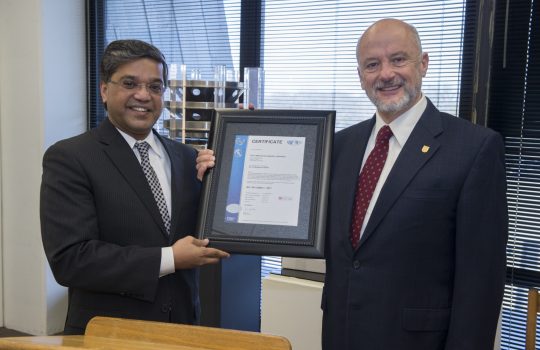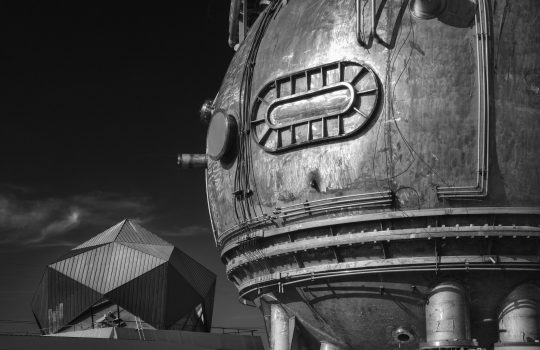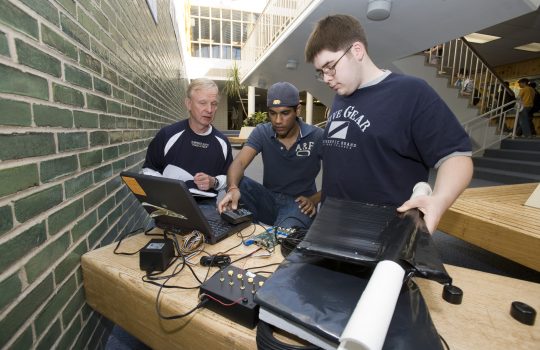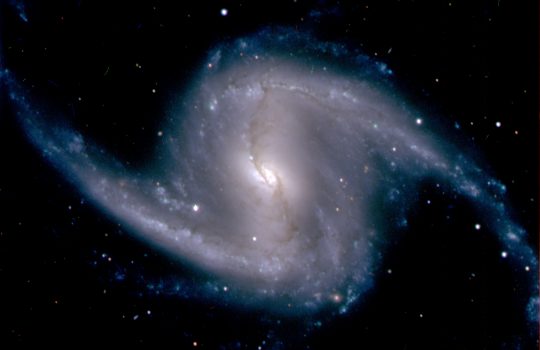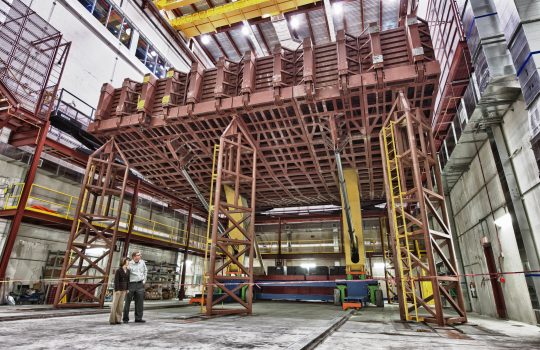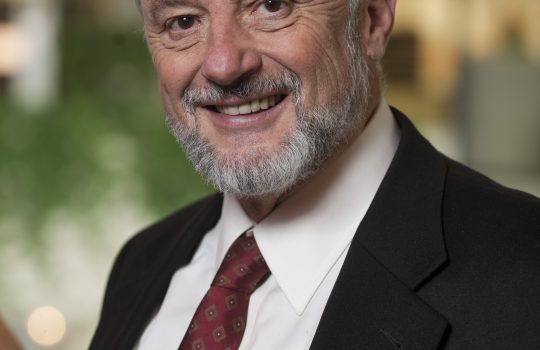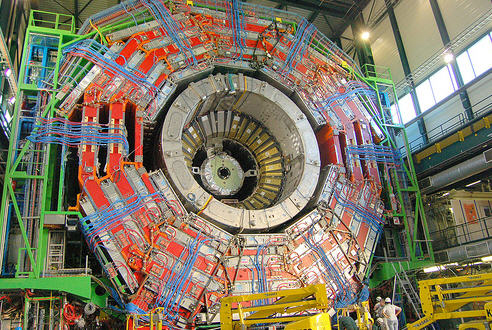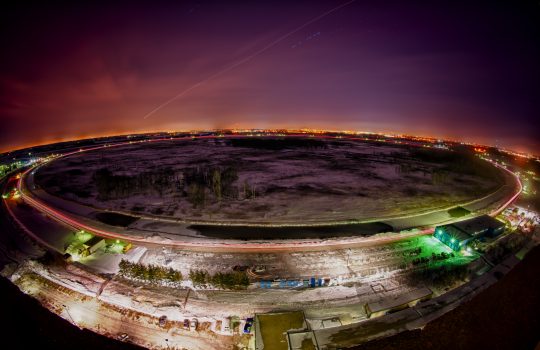New evidence strengthens case that scientists have discovered a Higgs boson
The new particle discovered at experiments at the Large Hadron Collider last summer is looking more like a Higgs boson than ever before, according to results announced today.
Fermilab becomes first DOE laboratory to earn ISO 20K certification
The U.S. Department of Energy’s Fermi National Accelerator Laboratory has earned ISO 20000 certification for excellence in information technology service management. Fermilab is the first of the Department of Energy’s 17 national laboratories to earn this certification.
Fermilab photo contest winners chosen; will advance to international competition
The judges have spoken, and the winners have been chosen in this year’s Fermilab Photowalk competition.
Green thumbs wanted for Fermilab’s Prairie Harvest on Nov. 3
Calling all nature lovers. How would you like the chance to help diversify one of the oldest prairie restorations in Illinois?
QuarkNet program receives $6.1 million NSF award to advance science education
The University of Notre Dame has received a five-year, $6.1 million award from the National Science Foundation to support the nationwide QuarkNet program, which has inspired teachers and students alike for 15 years.
World’s most powerful digital camera opens eye, records first images in hunt for dark energy
Eight billion years ago, rays of light from distant galaxies began their long journey to Earth. That ancient starlight has now found its way to a mountaintop in Chile, where the newly constructed Dark Energy Camera, the most powerful sky-mapping machine ever created, has captured and recorded it for the first time.
Crews complete first block of North America’s most advanced neutrino experiment
Today, technicians in Minnesota will begin to position the first block of a detector that will be part of the largest, most advanced neutrino experiment in North America.
Pier Oddone to step down as Fermilab director
The Fermi Research Alliance (FRA) Board of Directors, which manages and operates Fermi National Accelerator Laboratory, announced today that Fermilab Director Pier Oddone has decided to retire after eight years at the helm of America’s leading particle physics laboratory.
Search for Higgs boson at Large Hadron Collider reveals new particle
Physicists on experiments at the Large Hadron Collider announced today that they have observed a new particle. Whether the particle has the properties of the predicted Higgs boson remains to be seen.
Tevatron scientists announce their final results on the Higgs particle
After more than 10 years of gathering and analyzing data produced by the U.S. Department of Energy’s Tevatron collider, scientists from the CDF and DZero collaborations have found their strongest indication to date for the long-sought Higgs particle.

